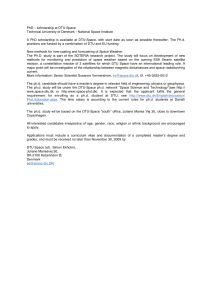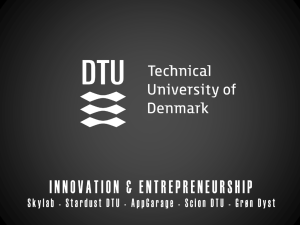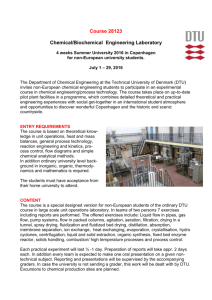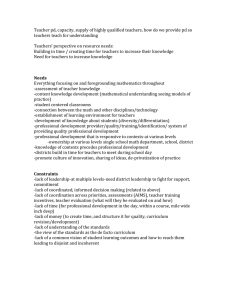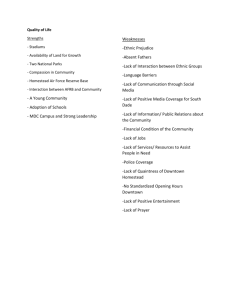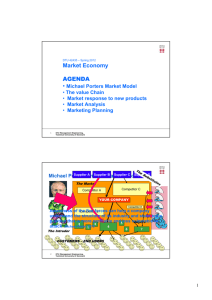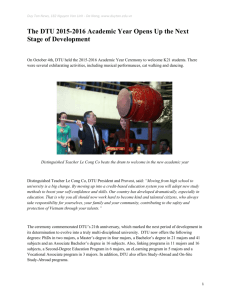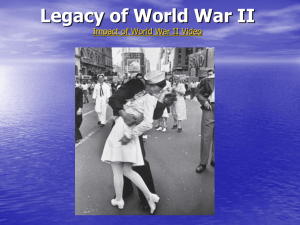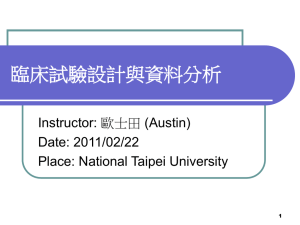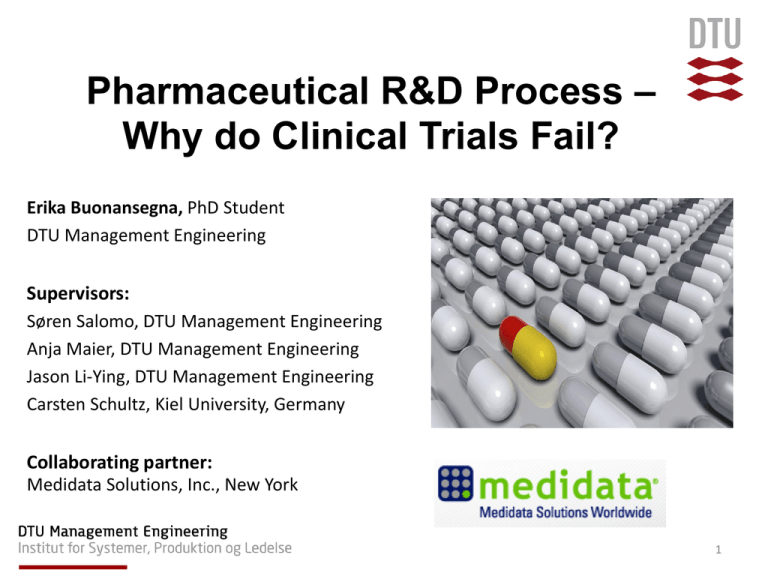
Pharmaceutical R&D Process –
Why do Clinical Trials Fail?
Erika Buonansegna, PhD Student
DTU Management Engineering
Supervisors:
Søren Salomo, DTU Management Engineering
Anja Maier, DTU Management Engineering
Jason Li-Ying, DTU Management Engineering
Carsten Schultz, Kiel University, Germany
Collaborating partner:
Medidata Solutions, Inc., New York
1
gate
Idea generation
and evaluation
Concept
development
and product
planning
gate
gate
Prototype
development
gate
Test of the
prototype
P.I.R
Production and
Market
Introduction
Test of the prototype
Research &
Drug
Discovery
Preclinical
Studies
Phase I
Phase II
Phase III
Market
Approval
Clinical Trials
(Cooper, 1994)
2
INTRO TO THE PHARMACETICAL R&D:
DRUG DISCOVERY AND DEVELOPMENT PROCESS
Research &
Drug
Discovery
0.5-2 years
6-7 years
3-6 years
Preclinical
Studies
Phase I
Phase II
Market
Approval
Phase III
Clinical Trials
5.000-10.000
compounds
250
5
1
(Efpia, 2011)
3
CLINICAL TRIAL NETWORK
Sponsor
Site
4
CLINICAL TRIAL NETWORK
Sponsor
CRO
Site
5
CLINICAL TRIAL NETWORK
Sponsor
CRO
Site
6
RESEARCH MOTIVATION
• Few studies on CT failure
• Little knowledge on determinants of failure in late
development stages
• Search for tools to manage CTs
Reasons for drug failure
adverse events
16%
pharmacokineti
cs
miscellaneous
7%
7%
commercial
reasons
7%
toxicity
miscellaneous
9%
lack of
efficiency
46%
17%
(Centre for Medicine Research in Kennedy, 1997)
commercial
reasons
34%
lack of
efficiency
37%
lack of safety
20%
(DiMasi, 2001)
7
RESEARCH AIM AND QUESTIONS
Refine the understanding on failures in clinical trials as a late
development stage.
Research Questions:
(1) “What causes failure of clinical trials?”
(2) “Can such causes be systematically mapped?”
(3) “Does the assessment of clinical trial failures provide insights
into a more general concept of NPD failure during later
stages of the development process?”
8
METHODOLOGY
Address
clinical trials
specificities
9
Literature
review
Expert study
17 interviews
Conceptual
framework
CONCEPTUAL FRAMEWORK
Not potential product
Potential product
Success
False-positive failures
Completion
of a project
-Difficult subject recruitment for testing
-Lack of experience in choosing and monitoring the partners
-Lack of feasibility of the testing procedure
-High demand for documentation
-Many incidents while testing
-Unmanageable level of portfolio complexity
-Incorrect assessment of the market potential or returns
Termination
of a project
False-negative failures
-Difficult subject recruitment for testing
-Lack of experience in choosing and monitoring the partners
-Lack of feasibility of the testing procedure
-High demand for documentation
-Many incidents while testing
-Unmanageable level of portfolio complexity
-Incorrect assessment of the market potential or returns
10
Inevitable failures
-Toxicity
-Lack of efficacy
-Economics
MANAGERIAL IMPLICATIONS
Proactive strategies
• Improving skills of the development team
• Due diligence in choosing sites and subcontractors
• E-recruitment tactics
• Monitoring sites and subcontractors
• Interim and risk analyses
• Training for SAEs
• Feedback from investigators
Reactive strategies
• Fast reallocation of resources
• Back-up candidates and parallel-track strategy
• Learning-by-failing mind set
11
FUTURE RESEARCH
• Clinical trial research
– Interdependencies
– Ranking according to phases
– In-depth case studies
• Late development stages in other industries
12
Erika Buonansegna
PhD Student
Technical University of Denmark
DTU Management Engineering
Produktionstorvet, Bygning 426
2800 Kgs. Lyngby
Denmark
erbou@dtu.dk
13

